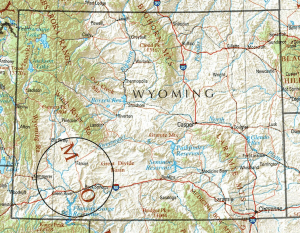 Sprint CEO Dan Hesse has declared war on the proposed merger of AT&T and T-Mobile, suggesting it would result in a nationwide cell phone duopoly that will stifle innovation and eliminate competition.
Sprint CEO Dan Hesse has declared war on the proposed merger of AT&T and T-Mobile, suggesting it would result in a nationwide cell phone duopoly that will stifle innovation and eliminate competition.
“If AT&T is allowed to swallow T-Mobile, competition will be stifled, growth will be stifled and wireless innovation will be jeopardized,” Hesse told attendees at the Commonwealth Club of California Friday.
Sprint’s announced opposition to the proposed merger came during a speech that was supposed to be about the company’s environmental initiatives, but Hesse opened his remarks warning of the dire implications should the nation’s second largest wireless carrier absorb the fourth — T-Mobile.
Sprint CEO Dan Hesse delivers remarks at the Commonwealth Club of California – Friday, April 15, 2011. This edited clip covers Hesse’s remarks regarding the proposed merger of AT&T and T-Mobile. (12 minutes)
You must remain on this page to hear the clip, or you can download the clip and listen later.
Sprint has signaled it is willing to spend lobbying dollars to fight the merger in Washington, where it faces a review by the Justice Department and the FCC. The declaration of war by Sprint did not go over well at AT&T, where the company’s top lobbyist Jim Cicconi trotted out Hesse’s prior statements to use against him in a company blog post:
As recently as last October, Mr. Hesse said the wireless industry is ‘hyper competitive‘. The month prior, his CFO talked about how ‘tough‘ retail competition is in the wireless market, citing at least six major competitors. In February of last year, Mr. Hesse said, “M&A is absolutely a way to get the growth in the industry, if a particular transaction makes sense for anybody.” He went on to say, “I think consolidation will be healthy for the industry, some consolidation. It is, needless to say, very competitive.” And in January of last year at a Citi Global Conference, Mr. Hesse said, “Well, there is no question that we have an extremely competitive wireless industry in this country and that the pricing is getting much more aggressive.”
Given that Sprint is a major competitor to AT&T in the hyper competitive wireless market Mr. Hesse describes, no one should be surprised that they would oppose this merger. But it is self-serving for them to argue that the highly competitive wireless market they cited only months ago is now threatened by the very type of transaction they seemed prepared to defend previously.
Sprint was reportedly interested in pursuing a merger with T-Mobile before AT&T sealed their own deal with the German telecommunications company.
Cicconi’s remarks about a “hyper-competitive” marketplace conflict with marketplace reality:
- A combined AT&T/T-Mobile enterprise would control 42 percent of the American wireless marketplace;
- Verizon Wireless would control 32 percent;
- Sprint would maintain third place with a distant 17 percent;
- Every other carrier combined (Cricket, MetroPCS, Alltel, and other regional players) would have just 9 percent.
In fact, after Sprint, other carriers AT&T routinely cites as “serious competition” individually have just three percent or less of the American market.
Hesse told his audience that besides concerns about innovation and price, also-ran carriers other than AT&T and Verizon are likely going to get stuck with less advanced handsets and face little or no access to latest generation iPhone and Android smartphones, often made available exclusively to larger carriers.
“Whoever the supplier is, you can say, ‘Hey, I’ll take all of your production,'” Hesse said. “They could restrict our access to some of the cool devices.”
Hesse predicts his company will ultimately not be the only one opposing the merger. But smaller carriers have had little to say since the merger was announced.


 Subscribe
Subscribe






